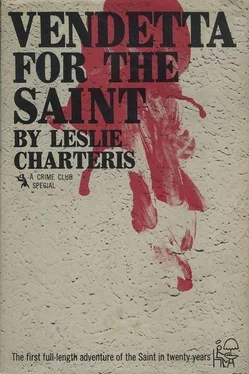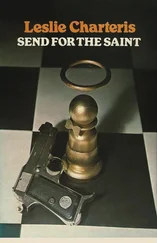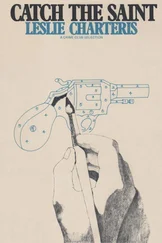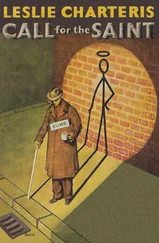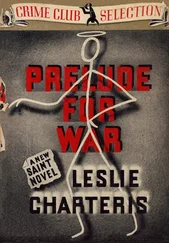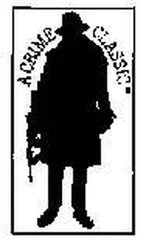“Dey build only seven,” the owner crooned, carefully flicking a speck of dust from the glistening fender. “Bugatti ’imself bust-a one up in a wreck, and now dey only six sonovabitch in ’ole gahdam-a world.”
Immense is an ineffective word for such a car. Over a wheel-base of more than fourteen feet, the rounded box of the coupe-de-ville shrank in perspective when seen along the unobstructed length of the brobdingnagian hood. The front fenders rose high, then swept far back to form a running-board.
“And-a look-a dis—”
The mechanic was manipulating the intricate locks and handles that secured the hood, and with no small effort he threw it open. He pointed with uncontainable pride to the spotless engine, which resembled the power plant of a locomotive rather than that of an automobile. It must have been more than five feet long.
“I have heard,” Simon said, “that if a Bugatti starts at all, it will start with just one pull on the crank.”
“Dat’s-a-right. Sono raffinate — what you call, ’igh-strung like-a race ’orse — but when she fix-a right, she always start. I show you!”
The man turned on the ignition, adjusted the hand throttle and the spark, and slipped the gleaming brass crank-handle into its socket. Then he waved the Saint to it with an operatic gesture.
“You try it yourself, professore!”
Simon stepped up, grasped the handle and engaged it carefully, and with a single coordinated effort gave it a crisp turn through a half-circle. Without a cough or a choke, the engine burst into responsive life, with a roar which did not entirely drown out a strangely pleasing metallic trill not unlike a battery of sewing machines in full stitch.
“That,” said the Saint, raising his voice slightly, “would give me a lot of fun for a few days.”
“No, no,” protested the owner. “Dat sonovabitch not-a for rent. Much-a too valuable, should-a be in museum. I only show you.”
His voice ran down as he stared at the currency which the Saint was peeling off the roll in his hand. The sum at which Simon stopped was perhaps wantonly extravagant, but to the Saint it did not seem too high to pay for the fun of having such a historic toy to play with. And after all, he reflected, it was only Al Destamio’s money.
Thus, in due course, having gone back to collect his jacket while the rental paper-work was being prepared, after signing the necessary forms and being checked out on the controls, the Saint seated himself at the wheel, engaged first gear, and let up gently on the clutch. With a tremor of joy the mighty monster gathered itself and sprang through the open gates into the alley behind while its owner waved a dramatic and emotional farewell.
For a motorist of refined perceptions, driving a Bugatti is an experience like hearing the definitive performance of a classical symphony. Dynamic efficiency and supreme road-holding were the qualities that Bugatti wanted before anything else; and since he was a man incapable of compromise, that was what he obtained. The steering wheel vibrated delicately in the Saint’s fingers, like a live member, sensitive to his lightest touch; guidance was like cutting butter with a hot knife. There was a little more difficulty with slowing up, since Bugatti always intended his cars to go rather than stop, but this could be overcome by adroit down-shifting and extra assistance from the hand brake. Simon happily sounded the horn, which gave out a rich tuneful note like a trombone, as he passed groups of cheering urchins and gaping adults on his way out of the town. The engine boomed with delight, and the great length of the red hood surged forth into the countryside.
Only too quickly the details of Ponti’s sketch map spun by until at a last turning he saw the Destamio manse before him. With some reluctance he turned off the pavement and parked under the shade of a tree.
A high wall, topped with an unfriendly crest of broken bottles and shards of tile, surrounded the grounds and hid all of the house except the roof. He pressed a button beside a pair of massive iron-bound wooden doors, and waited patiently until at long last a medieval lock grated open and a smaller door set in one of the vast ones creaked open. A short swarthy woman in a maid’s apron peered out suspiciously.
“Buona sera,” he said pleasantly. “My name is Templar, to see Donna Maria.”
He stepped forward confidently, and the maid let him pass through. His first strategy was to give the impression that he was expected, and to go as far as he could on that momentum, but this was not enough to get him into the house. On the balustraded terrace which ran across the full width of the building, the maid waved him towards a group of porch furniture.
“Wait here, if you please, signore. I will tell Donna Maria. What was the name?”
Simon repeated it, and remained standing while he surveyed the house, a typically forbidding and cumbersome box-like structure of chipped and fading pink plaster with shutters that badly needed repainting, a shabby contrast with the well-kept and ordered brilliance of the garden. He had transferred his attention to that more agreeable scene when he heard a measured and heavy tread behind him, and turned again.
“Donna Maria?” he said, with his most engaging smile, profferring his hand. “My name is Simon Templar. I am an old friend of your brother Alessandro. When he heard that I was coming to Palermo, he insisted that I should come and see you.”
The woman stood unmoving, except to glance down at his hand as if it were a long-dead fish. This expression perfectly fitted the lines around her mouth and flared nostrils, and was obviously one that she used a great deal. Her straggly mustache was black; but the mass of her hair, pulled back into a tight bun, was a dull steel gray. She was a head shorter than the Saint, but at least twice his diameter, and this bulk was encased in a corset of such strength and inelasticity that there was little human about the resultant shape. In the traditionally characterless black dress outside it, she reminded him of a piano-legged barrel draped for mourning.
“I never see my brother’s friends,” she said. “He keeps his business separate from his family life.”
Just as no ornament relieved the drabness of her robe, no trace of cordiality tempered the chill of her words. Only a person with the Saint’s self-assurance and ulterior motives could have survived that reception; but his smile was brazenly unshaken.
“That shows you how much he values our friendship. We were in the same business in America, where I come from — almost partners. So when I was at his villa in Capri the other day, for lunch, he made me promise to call on you.”
“Why?”
The question was a challenge and almost a rebuttal in advance. It was clear that Al Destamio did not send his friends to the ancestral demesne out of spontaneous good-fellowship — if he ever sent them at all. Simon realized that he would have to improve his excuse, and quickly, or in a few seconds he would be outside again with nothing achieved but a glimpse of the unprepossessing facades of Donna Maria and her lair.
“Alessandro insisted that I should get to know you,” he said, allowing a rather sinister frigidity to creep into his own voice. “He told me what a good sister you were, and how he wanted to be sure that in any time of trouble you would know which of his friends to turn to.”
The ambiguity reached a mark of some kind: at least, there was an instant’s uncertainty in the woman’s basilisk gaze, and afterwards a very fractional unbending in her adamantine reserve.
“It has been a hot day, and you will enjoy a cold drink before you leave.”
“You are much too hospitable,” said the Saint, achieving the miracle of keeping all sarcasm out of his reading.
Читать дальше
